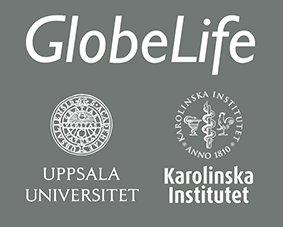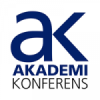Confirmed speakers
Confirmed invited speakers at DevRes 2022.
Session: Transforming development research for sustainability
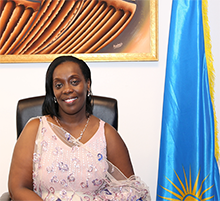
Dr. Diane Gashumba
Dr. Diane Gashumba is the Ambassador of Rwanda to the Kingdom of Sweden (with jurisdiction over Norway, Finland, Denmark and Iceland). She is a senior pediatrician, medical administrator, Global Gender Advocate and politician and has worked with USAID as both a Senior Team Leader and Deputy Chief of Party. She also served as the Minister of Gender and Family Promotion and was the Minister of Health in the Cabinet of Rwanda. She served in several boards including as co- chair of the he WHO Digital Health Technical working Group and board member of Global Health Corps. We are pleased to have her as a speaker for our first plenary ‘Transforming development research for sustainability
Ambassador Diane’s Linkedin, Twitter: @DianeGashumba and Instagram: dianegashumba
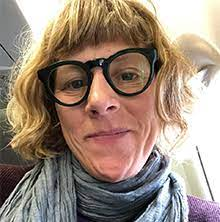
Dr. Lisa Schipper
Dr. Lisa Schipper is the Research Fellow at the Environmental Change Institute at the University of Oxford. Her work focuses on adaptation to climate change in developing countries, and looks at gender, religion and culture to understand what drives vulnerability. Until its completion in February 2022, she was Co-ordinating Lead Author for Chapter 18 (Climate Resilient Development Pathways) for the Sixth Assessment Report of the Intergovernmental Panel on Climate Change (IPCC). We are pleased to have her as a speaker for our first plenary ‘Transforming development research for sustainability’. twitter – @schipper_lisa
Session: Sweden’s new government strategy for research and development cooperation
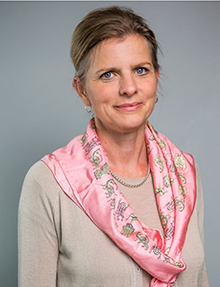
Helen Eduards
Helen Eduards is the Director-General for International Development Cooperation at the Ministry for Foreign Affairs (MFA). Among other assignments, Ms Eduards previously held the position of Head of the European Union Department and of the Department for Aid Management within the same ministry. She also served as Sweden’s Ambassador to Austria. We are pleased to have her as a speaker and panelist during our public event titled ‘Sweden’s new government strategy for research and development cooperation’
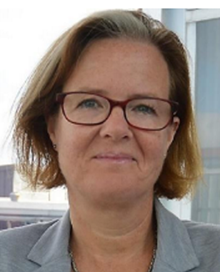
Carin Jämtin
Carin Jämtin is the Director-General of the Swedish International Development Cooperation Agency (Sida) since 2017. She has a long political career within the Social Democratic Party at both national and local levels, including as the Minister for International Development Cooperation. She has also worked at the Olof Palme International Centre from 1999-2003. We are pleased to have her as a speaker and panelist during our public event titled ‘Sweden’s new government strategy for research and development’.
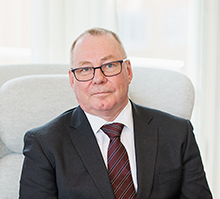
Anders Söderholm
Anders Söderholm is the Director-General of the Swedish Higher Education Authority (UKÄ) since 2017. He was also the vice-chancellor at Umeå School of Business and Economics and at Mid Sweden University. He is also a professor of business administration. We are pleased to have him as a speaker and panelist during our public event titled ‘Sweden’s new government strategy for research and development cooperation’
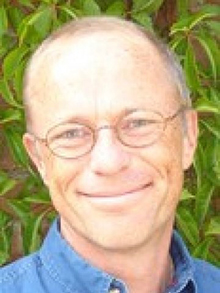
Stefan Swartling Peterson
Dr. Stefan Swartling Peterson is a Public Health Physician and Professor of Global Transformation for Health at the Department of Global Public Health at Karolinska Institutet. He served as the Global Chief of the Health for UNICEF from 2016-2020, based in New York. His formative work has been in East Africa over the last 20 years working on health systems and implementation science. We are pleased to have him as our moderator for the public event titled ‘Sweden’s new government strategy for research and development cooperation’.
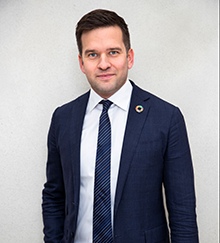
Gabriel Wikström
Gabriel Wikström is Sweden’s National Coordinator for the 2030 Agenda. He was formerly the minister with responsibility for public health and healthcare, as well as working as a municipal politician who was engaged in youth issues. We are pleased to have him as a speaker and panelist during our public event titled ‘Sweden’s new government strategy for research and development cooperation’
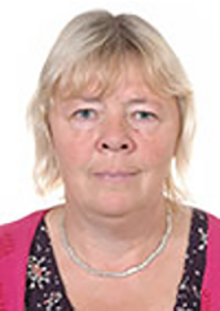
Ingrid Öborn
Ingrid Öborn is a Professor of Agricultural Cropping System at the Swedish University of Agricultural Sciences (SLU) and is a Senior Research Fellow of World Agroforestry. She is also the Chair of the committee for development research at Vetenskapsrådet (VR). We are pleased to have her as a speaker and panelist during our public event titled ‘Sweden’s new government strategy for research and development cooperation’
Session: What is meant by ‘sustainable health’ from a COVID-19 perspective?

Dr. Maria Elena Bottazzi
Dr. Maria Elena Bottazzi is the Associate Dean of the National School of Tropical Medicine and Co-director of Texas Children’s Hospital Center for Vaccine Development at Baylor College of Medicine in Texas. She is a vaccinologist and global health advocate for neglected tropical diseases. One of her ongoing programs (alongside Dr. Hotez) has been the development of a patent-free COVID-19 vaccine (Corbevax – in partnership with Biological E, Ltd.), for which has led to a Nobel Peace Prize nomination for their efforts to bring forth global vaccine diplomacy and equity. We are pleased to have her as a speaker for our plenary session titled ‘What is meant by ‘sustainable health’ from a COVID-19 perspective?’ with her perspective on vaccine development.
Session: Intersectorality of prevention, NCDs as an example
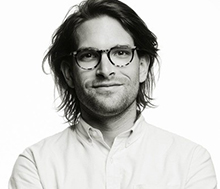
Dr. Sandro Demaio
Dr. Sandro Demaio is a medical doctor and public health expert and currently the Chief Executive Officer of VicHealth a foundation focusing on preventing chronic disease and promoting good health. He has an extensive background as the CEO of the EAT Foundation and was the Medical Officer for non-communicable conditions and nutrition at the World Health Organization. He has held fellowships at both Harvard Medical School and Johns Hopkins School of Public Health. He also co-founded NCDFREE, a social movement against chronic disease. We are pleased to have him as a speaker for our plenary session titled ‘Intersectorality of prevention, NCDs as an example’.
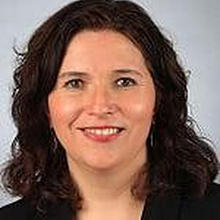
Dr. Luz Maria De-Regil
Dr. Luz Maria De-Regil is the Unit Head for the Multisectoral Action in Food Systems at the World Health Organization. She has spent over 20 years working in the field of global nutrition and health and works with partners across sectors to create policies and national roadmaps to help people fulfill their rights to affordable, nutritious and safe foods. We are pleased to have her as a speaker for our plenary session titled ‘Intersectorality of prevention, NCDs as an example’.
Session: Research and education in global health and development; are movements for ‘decolonization’ actually shifting power systems?
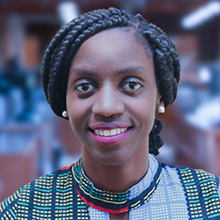
Esther Bayiga
Esther Bayiga is a PhD candidate at the School of Public Health, at Makerere University (MakSPH). Her PhD research, funded by the German Federal Ministry of Education, focuses on pedestrian safety and the built environment in Kampala city, Uganda. She is also a research fellow in the department of Disease Control and Environmental health were she specializes in road safety research. She was a 2015-2016 NIH Fogarty fellow under the Johns Hopkins-Makerere University collaboration on Trauma, Injury and disability research. She sees the need to discuss ‘decolonization’ after her years working in research projects funded by different agencies and the positions she has held as a young scholar involving different partnerships. We are pleased to have her as a speaker for our plenary and panel session titled ‘Research and education in global health and development; are movements for ‘decolonization’ actually shifting power systems?’
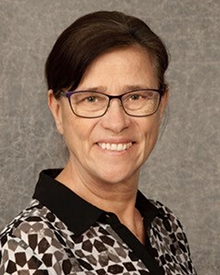
Mariam Claeson
Mariam Claeson is the senior project manager of Political Economy of Adolescent Mental Health at the Department of Global Public Health at Karolinska Institutet. She has extensive international health and development experience as the former Director of the Global Financing Facility for Every Woman Every Child at the World Bank and as Director for the Maternal Newborn and Child Health team at the Bill and Melinda Gates Foundation. We are pleased to have her as a speaker during our plenary and panel session titled ‘Research and education in global health and development; are movements for ‘decolonization’ actually shifting power systems?’
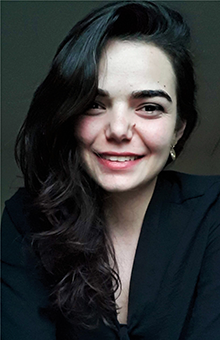
Soha El Halabi
Soha El Halabi is a PhD student at the Department of Global Public Health, Karolinska Institutet. Her research is around companionship interventions during childbirth- with emphasis on equitable and respectful care. Before joining as a doctoral student, Soha worked as a project manager in Lebanon on the topic of substance use policies and was also involved in several research projects (on digital health, child vaccination and knowledge translation). Soha is passionate about informing decision making in health and shrinking the know-do gap! We are pleased to have her as a moderator during the panel discussion on ‘Research and education in global health and development; are movements for ‘decolonization’ actually shifting power systems?’
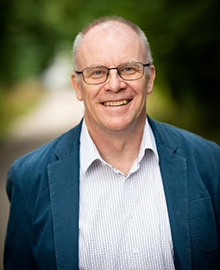
Anders Hagfeldt
Prof Anders Hagfeldt is Vice-Chancellor of Uppsala University since 2021 and Professor of Physical Chemistry. He obtained his PhD at Uppsala University in 1993. His research has focused on fields of dye-sensitized solar cells, perovskite solar cells and solar fuels. He has published more than 630 scientific papers that have received over 117.000 citations. 2014-2021 he was Professor at The Swiss Federal institute of Technology in Lausanne (EPFL). Between 2013-2019 he chaired the Committee for Development Research at the Swedish Research Council. He is also a co-founder and board member of Dyenamo AB. We are pleased to have him as a speaker during our plenary and panel session titled ‘Research and education in global health and development; are movements for ‘decolonization’ actually shifting power systems?’
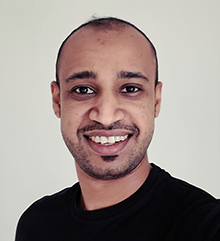
Elsharif Izzeldin
Dr. Elsharif Izzeldin is a master’s student in the Global Health programme at Uppsala University and a member of the Boost community. He is a medical doctor with years of operational experience within primary healthcare, disease outbreaks, community outreach and public health disasters, primarily in Sudan, Pakistan and the Sultanate of Oman. He is passionate about capacity building, health resilience, and building equity through addressing the determinants that can strengthen health systems. We are pleased to have him as a moderator during the panel discussion on ‘Research and education in global health and development; are movements for ‘decolonization’ actually shifting power systems?’
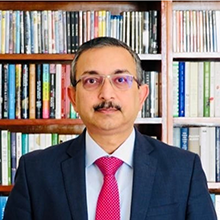
Tanmaya Lal
Tanmaya Lal is the Ambassador of India to Sweden and Latvia since 2020. He has extensive experience working on multilateral aspects of India’s engagement and previously was the Ambassador/Deputy Permanent Representative of India to UN and headed the UN Economic & Social (UNES) Division and the East & Southern Africa (E&SA) Division at headquarters. He has also served in the Indian Missions in Bonn, Tehran, Vienna, Bangkok and Nairobi. We are pleased to have him as a speaker during our plenary and panel session titled ‘Research and education in global health and development; are movements for ‘decolonization’ actually shifting power systems?’
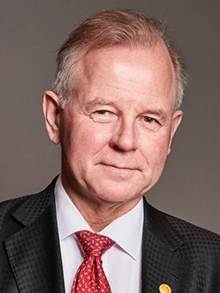
Ole Petter Ottersen
Professor Ole Petter Ottersen is a neuroscientist and physician, and has been President of the Karolinska Institutet since 2017, having previously served as President of the University of Oslo. Prior to this, Ottersen held leadership positions at the Norwegian Association of Higher Education Institutions, the Nordic University Association, Norway’s National Program for Functional Genomics, and Norway’s Centre of Excellence in Molecular Biology and Neuroscience, and was Chief Editor of Neuroscience, the official journal of the International Brain Research Organization. In recent years, he has been heavily engaged in global health – much inspired by his experiences as Chair of the Lancet-University of Oslo Commission on Global Governance for Health. He currently serves as a board member of the African Population and Health Research Center (APHRC) based in Nairobi. We are pleased to have him as a speaker during our plenary and panel session titled ‘Research and education in global health and development; are movements for ‘decolonization’ actually shifting power systems?’
Contact
Academic Conferences
Box 7059
750 07 Uppsala, Sweden
Phone: + 46 (0) 18 67 10 03
E-mail: DevRes2022@akademikonferens.se
Important dates
6 December 2021: Abstract submission opens
7 March 2022: Extended deadline for abstract submission
End of April 2022: Notification of abstract acceptance
16 May 2022: Opening of registration
